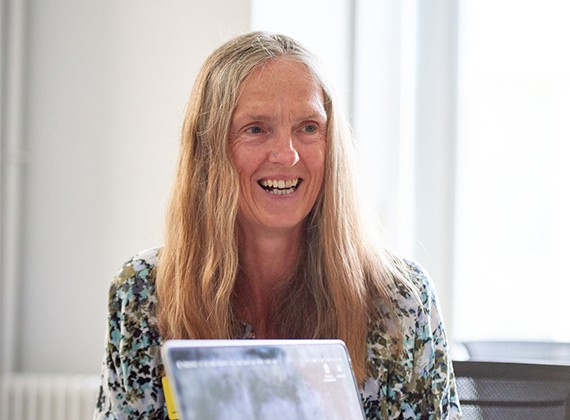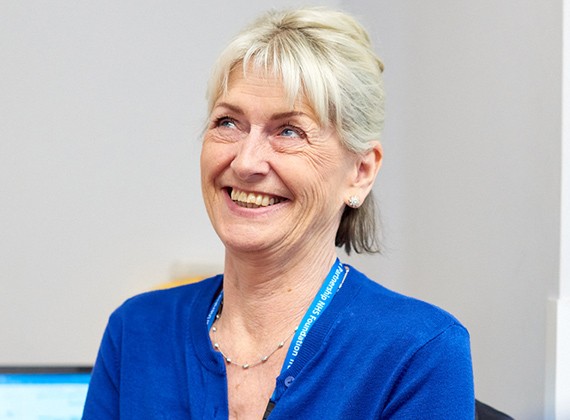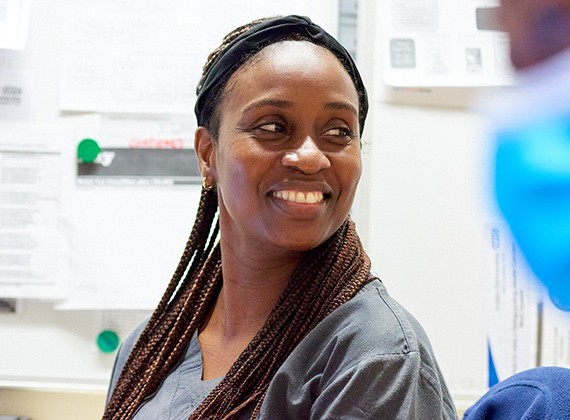

The Sussex Psychosis (Paranoia) Experiences and Recovery (SuPER) Clinic
The Sussex Psychosis (Paranoia) Experiences and Recovery (SuPER) clinic aims to develop, evaluate and implement evidence-based psychological therapies for psychosis, such as unusual distressing experiences, in community mental health teams in the Trust.
We do this through developing projects to better understand and support people with unusual distressing experiences and psychosis through research and novel treatments. This includes:
- Training staff to deliver evidence-based interventions across community mental health teams
- Evaluating outcomes of the interventions, and contributing to the research around supporting those with unusual distressing experiences
- Learning and innovating, working with research and clinical colleagues to deliver novel therapies in our services
- Promoting and supporting digital approaches to service delivery and care
- Disseminating findings from new research in psychosis, our own and international evidence-base for understanding and treating unusual distressing experiences and psychosis through the Sussex Psychosis Research interest Group (SPRiG).
Underpinning our work is a partnership with people with lived experience to ensure everything we do is meaningful and effective.
The SuPER clinic work with people who experience unusual distressing experiences, people experiencing paranoia and people with difficulties with everyday life and functions in the context of psychosis.
What therapies will we offer?
SlowMo is the first evidence-based digital psychological therapy designed specifically for paranoia. It's an effective therapy which is briefer and easier to implement than traditional CBT approaches. This 8-week therapy is assisted by an app downloaded onto a mobile phone. Therapists work with the person to identify their worries, and then help them find ways to slow down and take a moment when they notice their worries. The mobile app supports the use of these strategies in daily life. If people can use the app to slow down and take another look at the situation, they can often realise that things aren’t as bad as they first feared or find other ways to manage their worries.
The clinic will implement learning from the national‘SlowMo’ study which is led by Professor Philippa Garety, Thomas Ward, Amy Hardy (Kings College London, South London and Maudsley NHS Foundation Trust) and Kathy Greenwood (Sussex Partnership NHS Foundation Trust).
This 2-minute video explains SlowMo therapy:
The clinic swork closely with the Sussex Recovery College to integrate the therapies into the curriculum, to promote understanding, early intervention and self-management among service users, families and carers.
The Feeling Safe Programme is a type of cognitive therapy that has been shown to be effective in reducing persistent persecutory delusions. This ground-breaking cognitive treatment is based on 15 years of psychological research, clinical practice and service user input. It consists of modules, each addressing the different factors which maintain persecutory delusions, such as worry, poor sleep and low self-confidence. People choose the modules most relevant to them and, in the order of their choice, work with psychologists for over 20 sessions. The core belief is that people can make gains by trying things out in their daily life. The Feeling Safe trial showed that the programme is most effective for persecutory delusions, with three-quarters of people who received the intervention making large or moderate gains.
This illustration explains the therapy and research in more detail.
How it works
Practitioner psychologists working in our adult psychosis services will be trained in Feeling Safe in 2022 and 2023, and SlowMo in 2023.
We'll update this page with more information about how to make referrals in due course.
Research publications
Freeman, D., Emsley, R., Diamond, R., Collett, N., Bold, E., Chadwick, E., Isham, L., Bird, J., Edwards, D., Kingdon, D., Fitzpatrick, R., Kabir, T., Waite, F.,&Oxford Cognitive Approaches to Psychosis Trial Study Group (2021).
Garety, P., Ward, T., Emsley, R., Greenwood, K. et al. (2021).
Greenwood, KE et al (2022).
Greenwood, K., Robertson, S. et al. (2022).
Hardy, A., Ward, T., Emsley, R., Greenwood, K., et al. (2021).
Ward, T., Hardy, A., Holm, R., Collett, N., Rus‐Calafell, M., Sacadura, C., McGourty, A., Vella, C., East, A., Rea, M., Harding, H., Emsley, R., Greenwood, K. et al. (2022).
A Lived Experience Advisory Panel (LEAP) guides the work of the clinic.
If you'd like to get involved, please get in touch with Lucy Walsh in the Patient and Public Involvement in Research team to find out more: lucy.
Email: spft.
Address: SuPER Clinic, Research and Development, Sussex Education Centre, Sussex Partnership NHS Foundation Trust, Mill View Hospital Site, Nevill Avenue, Hove BN3 7HZ





